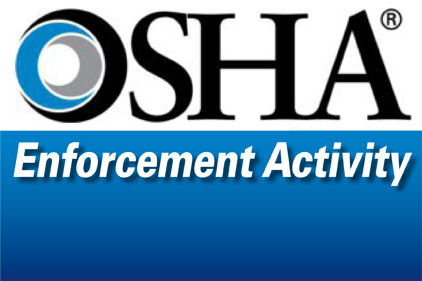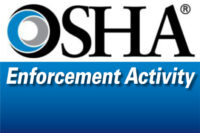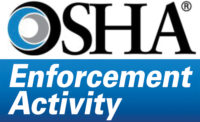Maine textile manufacturer faces $108,800 in OSHA penalties

 Employees at Formed Fiber Technologies LLC's Auburn manufacturing plant use a variety of machines, including robots, to make polyester carpets and thermoformed trunk liners for the automotive industry. An inspection by OSHA, begun in September 2014, has found these workers at risk of injuries because their employer did not ensure proper safeguards on the machines they operate.
Employees at Formed Fiber Technologies LLC's Auburn manufacturing plant use a variety of machines, including robots, to make polyester carpets and thermoformed trunk liners for the automotive industry. An inspection by OSHA, begun in September 2014, has found these workers at risk of injuries because their employer did not ensure proper safeguards on the machines they operate.
"Formed Fiber Technologies employees in Auburn face the risk of lacerations, crushed fingers, amputation or worse if struck by or caught in unguarded or unexpectedly activated machinery," said Maryann Medeiros, OSHA's area director for Maine. "Some of these hazards are similar to those found in previous OSHA inspections."
Lacerations, fractures, death
OSHA found that employees who cleaned water jet cells used in the production process faced potential lacerations, fractures and even death because the jet cells were not powered down and locked to stop them from starting, as required under OSHA'slockout/tagout standard. The company also failed to review a representative sampling of employees to make sure they understood and followed lockout/tagout requirements. These hazards were similar to those cited by OSHA in 2013 at the company's Sidney, Ohio, production facility.
Robots' long reach
Also, robots used to trim trunk liners during the production process had the capability of reaching beyond their safety perimeters and striking the robots' operators or other nearby employees. Other hazards involved lacerations, finger injuries or amputations because employees could come in contact with operating parts of looms, a grinder and a drill press.
As a result of these conditions, OSHA has cited Formed Fiber Technologies for two repeated and five serious violations of workplace safety standards. The company faces a total of $108,800 in proposed fines. The citations can be viewed here.
SVEP status
Violations at the Formed Fiber's Sidney, Ohio, facility led OSHA to place the company in its Severe Violators Enforcement Program, or SVEP, in 2013. SVEP focuses on recalcitrant employers that endanger workers by committing willful, repeat or failure-to-abate violations. Under the program, OSHA may inspect any of the employer's facilities if it has reasonable grounds to believe there are similar violations. The Auburn inspection was initiated on September 4, 2014 in response to a referral from OSHA's Chicago regional office about possible machine guarding and lockout/tagout hazards at the Maine plant.
Looking for a reprint of this article?
From high-res PDFs to custom plaques, order your copy today!





